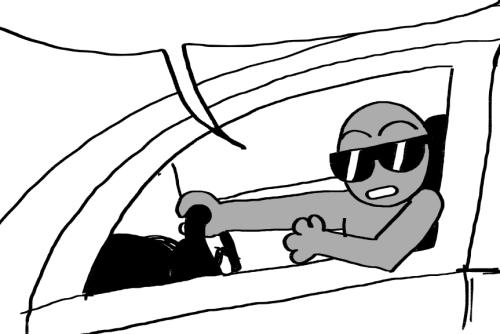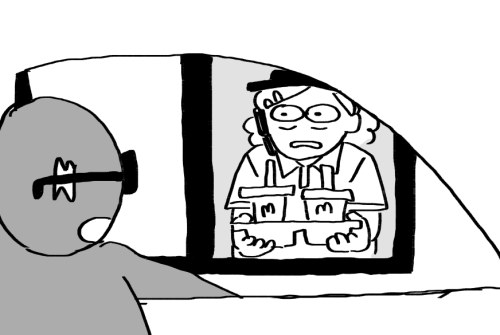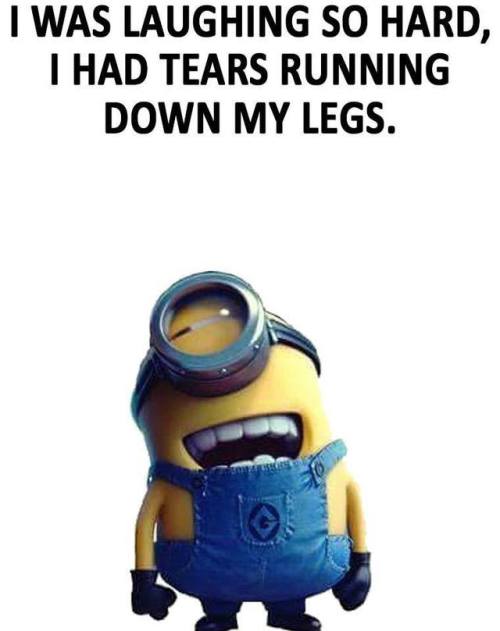Batmiaow - Batmiaow
More Posts from Batmiaow and Others
the only two ways i can categorize height is if i see something tall i go 'woah, big boy man' and if i see something short i go 'hah.. baby man' and idk what to blame for this. anyway wanna hear about the times ghosts have touched my ass


⋆dni if nsfw/kink, dd/lg, map, terf, swerf, truscum, or exclusionist⋆
⋆video by aeslimeic⋆


I can not express how HYSTERICAL I am over the way my roommates decided to cut my cake

By consistently presenting nature as an untouched wilderness, many nature documentaries mislead viewers into thinking that there are lots of untouched wildernesses left. I certainly thought there were, before I became an environmental journalist. This misapprehension then prompts people to build their environmental ideas around preserving untouched places and to embrace profoundly antihuman “solutions” to environmental problems, such as kicking indigenous people out of their homeland. In truth, wilderness doesn’t really exist.
In his famous 1995 essay, “The Trouble With Wilderness; or, Getting Back to the Wrong Nature,” the historian William Cronon demolished the concept of wilderness. Cronon argued that European settlers in North America had transformed their inherited idea of “wilderness” as worthless, scary, and unimproved land by reimagining it as a sublime, prehuman Eden. “The myth of the wilderness as ‘virgin’ uninhabited land had always been especially cruel when seen from the perspective of the Indians who had once called that land home,” Cronon wrote. In reality, the Americas had already been thoroughly shaped by the nearly 60 million people who lived there when colonists first arrived. Agriculture and other intensive human use was widespread, covering 10 percent of the Americas’ landmass; human-caused fires maintained grasslands and prairies; hunting, foraging, gathering, and replanting—sometimes in new places—regulated the populations and ranges of dozens of species.
The wilderness myth is simply factually inaccurate, in the Americas and elsewhere. It has also been a real stumbling block for conservation. With wilderness set as the gold standard for nature, any human influence has come to be seen as negative by default. The myth has thus ruled out any approaches to saving nature except walling it off and keeping humans out. Trying to “save the planet” with a wilderness mindset has been all about self-exile. It offers “little hope of discovering what an ethical, sustainable, honorable human place in nature might actually look like,” as Cronon wrote.
Making my little sister identify random Star Trek characters:

White Bread:
“If the computer ever doesn’t work, he sticks his finger in the socket and becomes the computer.”
“He hasn’t been outside in like, 80 years.”
“He cuts his own hair.”

Charles Xavier:
“He’s Captain Kirk’s father.”
“He comes onto the ship only for parent observation day, and he enjoys a good doughnut.”

Banana:
“He chose his name based on the color of his shirt. When you join the space, they let you pick a new name.”
“He works in the cafeteria, but everybody hates it because he only serves bananas.”
(This child has watched the original series. I don’t understand.)

Martha John:
“She used to be a nun, but she liked the space life instead, so she quit the sisterhood and joined the space.”
“White Bread cuts her hair too, with computer-like precision.”
“She hosts the ship’s karaoke party every Friday, and always opens with ‘My Heart Will Go On’.”

Darren:
“He’s the head of weapons” (said after I insisted that the ship has to have people with practical skills and not just party organizers.)
“When he joined, everyone thought he was so pretty they put his picture up everywhere.”
“He studies aliens but only the little ones.”

Winkle:
“They rescued Winkle from a bacon farm.”
“They give him a spray tan when he feels sad.”
“His job on the ship is he’s an emotional support animal, but he’s also a man.”

Sansha:
“What’s on her head?”
“Okay she studies space bugs, but when she flies around in space her visit only covers part of her face, so there’s bug debris.”
“She doesn’t like Winkle because he’s not a bug.”

“First name: He. Last name: Hears”
“He’s the professional ‘spakeup artist’ (space makeup artist). His job is to make them all look good.”
“Ears are in style right now.”
“His eyeshadow is on fleek.”

Dan:
“Just an ordinary man.”
“His part-time job is fixing the ship’s engines. His full-time job is being a footrest. He sits down and lets people rest their feet on him.”
“They’re not sure he’s human but don’t question him because he might have a deeper power.”

Lieclops:
“He lies.”
“He’s in charge of alien communications because he speaks a bunch of languages, but he only knows how to lie.”
“He has no eyes, only lies. That’s his motto. ‘All lies, no eyes’.”





-
 yourdestiny247 liked this · 2 weeks ago
yourdestiny247 liked this · 2 weeks ago -
 bisexmie reblogged this · 3 weeks ago
bisexmie reblogged this · 3 weeks ago -
 bisexmie liked this · 3 weeks ago
bisexmie liked this · 3 weeks ago -
 burningoffaroad liked this · 3 weeks ago
burningoffaroad liked this · 3 weeks ago -
 marsflower reblogged this · 3 weeks ago
marsflower reblogged this · 3 weeks ago -
 marsflower liked this · 3 weeks ago
marsflower liked this · 3 weeks ago -
 capriciouslyterminal reblogged this · 3 weeks ago
capriciouslyterminal reblogged this · 3 weeks ago -
 capriciouslyterminal liked this · 3 weeks ago
capriciouslyterminal liked this · 3 weeks ago -
 vellichorvibes reblogged this · 3 weeks ago
vellichorvibes reblogged this · 3 weeks ago -
 sixteenbeetles liked this · 3 weeks ago
sixteenbeetles liked this · 3 weeks ago -
 emuchipmunk liked this · 3 weeks ago
emuchipmunk liked this · 3 weeks ago -
 superblums reblogged this · 3 weeks ago
superblums reblogged this · 3 weeks ago -
 inarticulatehour liked this · 1 month ago
inarticulatehour liked this · 1 month ago -
 mycatmyjonnymybaby liked this · 2 months ago
mycatmyjonnymybaby liked this · 2 months ago -
 tayloralisonswift liked this · 2 months ago
tayloralisonswift liked this · 2 months ago -
 thepinkaristocrat liked this · 2 months ago
thepinkaristocrat liked this · 2 months ago -
 bluechaosbird99 liked this · 3 months ago
bluechaosbird99 liked this · 3 months ago -
 krillmo liked this · 4 months ago
krillmo liked this · 4 months ago -
 thehuns-bubble-tea liked this · 4 months ago
thehuns-bubble-tea liked this · 4 months ago -
 doyou000me reblogged this · 4 months ago
doyou000me reblogged this · 4 months ago -
 ken19920501 liked this · 7 months ago
ken19920501 liked this · 7 months ago -
 sicninja reblogged this · 7 months ago
sicninja reblogged this · 7 months ago -
 ninja8cookiez reblogged this · 7 months ago
ninja8cookiez reblogged this · 7 months ago -
 ninja8cookiez liked this · 7 months ago
ninja8cookiez liked this · 7 months ago -
 nervous-and-awkward liked this · 7 months ago
nervous-and-awkward liked this · 7 months ago -
 andrewleegreen liked this · 7 months ago
andrewleegreen liked this · 7 months ago -
 chinaofrps liked this · 8 months ago
chinaofrps liked this · 8 months ago -
 blucksails reblogged this · 8 months ago
blucksails reblogged this · 8 months ago -
 happysportsskeletonbear liked this · 9 months ago
happysportsskeletonbear liked this · 9 months ago -
 turtleworm liked this · 9 months ago
turtleworm liked this · 9 months ago -
 traumacoins liked this · 9 months ago
traumacoins liked this · 9 months ago -
 yohomojojojo liked this · 10 months ago
yohomojojojo liked this · 10 months ago -
 biggayslut liked this · 10 months ago
biggayslut liked this · 10 months ago -
 who-you-be liked this · 10 months ago
who-you-be liked this · 10 months ago -
 what-the-flowers reblogged this · 10 months ago
what-the-flowers reblogged this · 10 months ago -
 goldenaltar reblogged this · 10 months ago
goldenaltar reblogged this · 10 months ago -
 easybreezyveezy liked this · 11 months ago
easybreezyveezy liked this · 11 months ago -
 catgirlmoriarty reblogged this · 11 months ago
catgirlmoriarty reblogged this · 11 months ago -
 softgardens reblogged this · 11 months ago
softgardens reblogged this · 11 months ago -
 poepill liked this · 11 months ago
poepill liked this · 11 months ago -
 streawberige liked this · 11 months ago
streawberige liked this · 11 months ago -
 featuresofinterest reblogged this · 11 months ago
featuresofinterest reblogged this · 11 months ago -
 watsonimholmes liked this · 11 months ago
watsonimholmes liked this · 11 months ago -
 sleepyweepyseal liked this · 11 months ago
sleepyweepyseal liked this · 11 months ago -
 cerehling liked this · 11 months ago
cerehling liked this · 11 months ago -
 explainslowly reblogged this · 11 months ago
explainslowly reblogged this · 11 months ago -
 imnotevilimjustwrittenthatway reblogged this · 11 months ago
imnotevilimjustwrittenthatway reblogged this · 11 months ago -
 redneterp liked this · 11 months ago
redneterp liked this · 11 months ago -
 mcbangle reblogged this · 1 year ago
mcbangle reblogged this · 1 year ago
